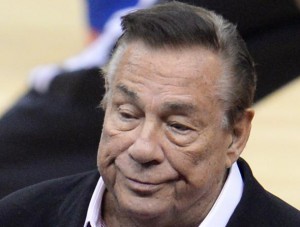NBA Will Likely Slam Dunk Sterling in Upcoming Lawsuits
In the aftermath of his famous racist comments, billionaire Donald Sterling has hired a posse of lawyers. Apparently he is not willing to go down without a fight. In fact, as of May 16, Sterling’s lawyers wrote the NBA, stating Sterling is refusing to pay the $2.5 million in fines, and has threatened to sue the league. The letter claims Sterling is not in violation of any rules of the NBA constitution, and the NBA is violating Sterling’s due process rights by banning him and slapping him with such a huge fine.
 A lot has been said about this case already, from violating California’s wiretapping laws, to free speech, to antitrust suits. The problem with evaluating those issues is that they all miss the point. This isn’t a case about privacy, free speech, or corporate regulation. It’s a case about a contract, and whether Sterling has lived up to the terms of that agreement. Quite simply, it doesn’t look like he has.
A lot has been said about this case already, from violating California’s wiretapping laws, to free speech, to antitrust suits. The problem with evaluating those issues is that they all miss the point. This isn’t a case about privacy, free speech, or corporate regulation. It’s a case about a contract, and whether Sterling has lived up to the terms of that agreement. Quite simply, it doesn’t look like he has.
What about Free Speech and Due Process?
Any concerns about free speed or due process can be dismissed immediately, because the NBA is a private organization and not the government. There is a small exemption for private organizations that receive government support, but it’s tangential to this matter. Plain and simple, Sterling does not have free speech protection shielding him from recourse from being slam dunked by the NBA. Nor is he entitled to due process; it’s a unique argument to make, but as far as legal doctrine goes, it’s a foul.
What about Privacy?
How this communication was disseminated to the public is irrelevant. Therefore, wiretapping and privacy concerns are likely not material. The only remotely relevant argument Sterling can make is that under Article 13(a) of the NBA constitution, which requires violations to be “willful.” He can argue his acts were not willful violations because they were surreptitiously and secretly documented. The weakness with that argument is that the ‘willful’ standard is not only vague, thus open to the Board’s discretion, but it is widely reported and there is ample evidence to support that Sterling knew he was being recorded, yet continued to say the things he did. This fact diminishes an argument that his actions were not “willful,” and eliminates any expectation of confidentiality, a requirement under the wiretapping statute, and along with it any wiretapping claim he may have against anyone.
What Is This Case Really About?
At the heart of the issue is “the contract”–i.e. the terms of the NBA constitution. It’s being called a contract because Sterling signed onto certain terms that go along with owning an NBA team. Specifically, Article 13(d) bars NBA owners from violating contractual obligations, and in particular the owner’s obligation not to engage in unethical conduct, or to act in a way that is adverse to the NBA. Sterling’s conduct certain appears to fit this bill, considering his remarks caused sponsors to reconsider backing the Clippers and nearly lead to a boycott by the players.
Moreover, filing a suit could be more disastrous than Sterling realizes. Over an issue such as this, California’s discovery laws and depositions could leave what little is left of his private life exposed to public view and scrutiny.
Looking at the looming legal battle between a lone billionaire and a league of basketball superstars, the outcome seems clear, and even before the start of the game. Sterling, standing down court, with the clock shot winding down, is tossing the ball from across the court, hoping to score. But as the buzzer sounds, he isn’t even close.


Comments